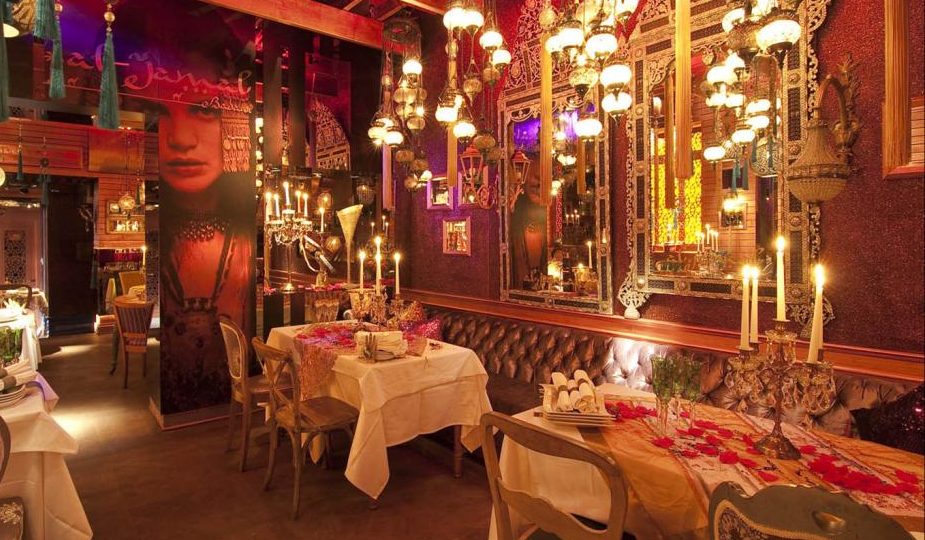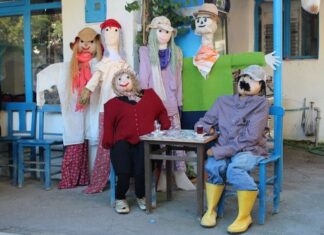For one rich man who died in the mid-sixth century, we have an inventory of his household property taken before it was knocked down on the auction block. He had clothing, tapestries, a particularly valuable shirt of silk and cotton colored red and green, and a trunk to put such things in, with a lock on it. He had cooking equipment, a small amount of furniture (chairs and a table), a saddle—and a slave named Proiectus. The goods of a freedman in his household—perhaps also recently deceased—were being sold at the same time. The freedman had fewer clothes but more utensils: tools and implements for the kitchen in particular.
It was just as well if you didn’t travel much, unless you were rich enough to be taken in by other rich people, for roads were dangerous and inns were usually associated with lowlifes and criminals and specialized in pandering and prostitution. A typical inn excavated in Syria had stables on its ground level and a floor or two of cubicles above for guests. Prosperous merchants might have enjoyed a slightly higher grade of guesthouse. Gradually the practice of charging travelers began to be acceptable even among the noncriminal class, squeezing out the more hospitable but dangerous impulses of earlier, more welcoming times.
Peace and prosperity of the Roman world
The peace and prosperity of the Roman world had to do with what we would now call economies of scale. The government could tax a vast and prosperous empire to support an idle professional army on its frontiers and a government that sat in one or two capital cities Gaulish fashion for trousers. Augustus had declared at the outset that Rome should expand its borders no farther and had undertaken the demilitarization of the Roman heartlands away from the frontiers, a prudent step designed to avoid civil war. As long as the outer shell held firm, this was a fine strategy, but if it cracked, then the settled and prosperous countryside was at risk. The rich grew richer while soldiers got only uniforms, bonuses, and small allotments of land at retire- ment— if they were lucky. Generals might become wealthy on retirement, but the aristocracy of the Roman world had always been civilian. When the great civilians were dispossessed or disappeared, leaving only military men wealthy enough to own land, as began to happen in Italy after the awful wars of the mid-sixth century, we can see the beginnings of feudalism.
Wherever you went, new forms of old religion were part of the air you breathed. One Christian hermit found himself in a town without much Christianity, so he set himself up in trade buying and selling walnuts. Not long after, a tax collector came to town and demanded payments that would have strained many purses. The hermit wisely arranged a loan from friends in a bigger town not far away to help out his new neighbors, and so from that time forward, he made more of his religious authority and was given new respect. In another town (the same church historian reports), little children played monks and demons, and one little girl exorcised her playmates among shrieks and giggles.








